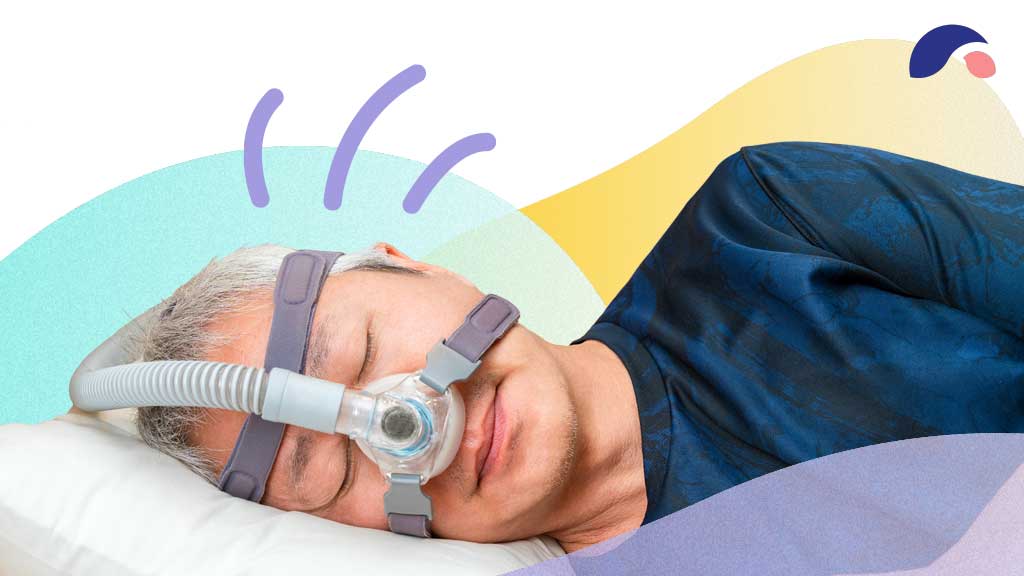Why Should You Advocate For Sleep Apnea Awareness And Research?

Sleep apnea is a common sleep disorder that affects millions of people worldwide. It is characterized by interruptions in breathing during sleep, leading to poor sleep quality and various health complications. Despite its prevalence and impact on individuals’ health and quality of life, sleep apnea remains underdiagnosed and undertreated.
This article aims to explore the importance of advocating for sleep apnea awareness and research. By understanding the nature of sleep apnea and its consequences, individuals can actively participate in promoting early detection and diagnosis. Additionally, advocating for research and treatment options can help improve the management and outcomes for those suffering from sleep apnea.
Support networks and resources play a crucial role in providing education and assistance to individuals with sleep apnea. Raising public awareness through campaigns and events can help reduce the stigma associated with sleep disorders and encourage individuals to seek help. By getting involved in sleep apnea advocacy, individuals can make a significant difference in improving the lives of those affected by this sleep disorder.
Key Takeaways
- Sleep apnea is a common and underdiagnosed sleep disorder that affects millions of people worldwide.
- Advocating for sleep apnea awareness and research is important to promote early detection, diagnosis, and better management of the condition.
- Sleep apnea can have serious health consequences, including hypertension, heart disease, stroke, diabetes, and mental health issues.
- Supporting sleep apnea organizations and initiatives can help raise awareness, fund research, and develop effective treatments and interventions.
Understanding Sleep Apnea
Sleep apnea is a common sleep disorder characterized by repeated pauses in breathing during sleep, resulting in disrupted sleep patterns and potential health consequences. These pauses, known as apneas, can last for a few seconds to minutes and can occur numerous times throughout the night.
The most prevalent type of sleep apnea is obstructive sleep apnea, which occurs when the muscles in the back of the throat fail to keep the airway open. This leads to a decrease in oxygen levels and an increase in carbon dioxide levels in the blood. As a result, individuals with sleep apnea often experience daytime sleepiness, fatigue, and difficulty concentrating.
Moreover, untreated sleep apnea has been linked to a higher risk of developing various health problems such as hypertension, heart disease, stroke, and diabetes. Therefore, advocating for sleep apnea awareness and research is essential to promote early detection, effective treatment, and improved overall health outcomes.
The Impact of Sleep Apnea on Health and Quality of Life
The presence of untreated sleep apnea can significantly impact an individual’s overall well-being and diminish their quality of life. Sleep apnea is a chronic condition characterized by repeated pauses in breathing during sleep, leading to fragmented sleep and reduced oxygen levels in the body.
These interruptions in breathing can result in excessive daytime sleepiness, impaired cognitive function, and decreased productivity. Moreover, sleep apnea has been linked to a variety of serious health conditions, including hypertension, cardiovascular disease, stroke, and diabetes.
Additionally, individuals with sleep apnea often experience poor mental health outcomes, such as depression and anxiety. By advocating for sleep apnea awareness and research, individuals can contribute to the identification and implementation of effective treatments, improving the health and well-being of those affected by this condition.
The Importance of Sleep Apnea Awareness
Promoting public understanding of the impact of untreated sleep apnea can lead to improved recognition and management of this chronic condition. By raising awareness about sleep apnea, individuals can better understand its potential consequences and seek appropriate medical attention.
Increased awareness can also help reduce the stigma associated with sleep apnea, encouraging individuals to come forward and discuss their symptoms with healthcare providers.
Furthermore, sleep apnea awareness can lead to the development of new treatments and interventions, as well as advancements in research. This can ultimately improve the quality of life for individuals living with sleep apnea and enhance their overall health outcomes.
Overall, advocating for sleep apnea awareness is crucial in order to address this widespread and often underdiagnosed condition effectively.
- Improved recognition and management of sleep apnea.nn2. Reduction of stigma associated with the condition.nn3. Development of new treatments and advancements in research.
Advocating for Research and Treatment Options
Advocating for increased research funding and expanded treatment options is essential for addressing the complexities of sleep apnea and improving patient outcomes.
Research plays a crucial role in deepening our understanding of sleep apnea, its causes, and potential treatments. By investing in research, we can uncover new insights into the underlying mechanisms of the disorder, leading to the development of more effective and personalized treatment strategies.
Additionally, research can help identify risk factors and comorbidities associated with sleep apnea, enabling healthcare providers to implement preventive measures and targeted interventions.
Furthermore, advocating for expanded treatment options is necessary to ensure that individuals with sleep apnea have access to a range of effective interventions that suit their specific needs. This may involve developing new therapies, improving existing treatment modalities, and promoting the integration of interdisciplinary approaches to care.
Ultimately, by advocating for sleep apnea research and treatment, we can enhance patient outcomes and contribute to the overall well-being of affected individuals.
Promoting Early Detection and Diagnosis
This paragraph will discuss the importance of promoting early detection and diagnosis of sleep apnea.
One key point is the use of screening and diagnostic tools, which can help identify individuals at risk for the condition.
Another key point is the collaboration with healthcare providers, as they play a crucial role in conducting assessments and providing appropriate referrals for further evaluation.
By promoting early detection and diagnosis, individuals with sleep apnea can receive timely treatment and interventions to improve their quality of life and reduce the risk of complications.
Screening and Diagnostic Tools
Screening and diagnostic tools play a crucial role in identifying individuals with sleep apnea, enabling timely interventions and potentially preventing the development of serious health complications. These tools are designed to assess the presence and severity of sleep apnea, allowing healthcare professionals to make accurate diagnoses. One commonly used screening tool is the Berlin Questionnaire, which assesses the risk of sleep apnea based on factors such as snoring, daytime sleepiness, and high blood pressure. In addition, polysomnography (PSG) is considered the gold standard diagnostic tool. PSG measures various physiological parameters during sleep, including brain activity, eye movement, muscle tone, and airflow, providing detailed information about the occurrence and characteristics of sleep apnea events. Another diagnostic tool is the portable home sleep apnea test, which allows for more convenient testing in the comfort of the patient’s own home. Overall, these screening and diagnostic tools are essential in identifying sleep apnea and guiding appropriate treatment strategies.
| Screening and Diagnostic Tools | Purpose | Examples |
|---|---|---|
| Berlin Questionnaire | Assess the risk of sleep apnea | – Snoring – Daytime sleepiness – High blood pressure |
| Polysomnography (PSG) | Gold standard diagnostic tool | – Measures brain activity – Eye movement – Muscle tone – Airflow |
| Portable home sleep apnea test | Convenient testing at home | – Measures sleep apnea events – Allows for more comfortable testing environment |
Collaboration with Healthcare Providers
Collaboration with healthcare providers is crucial for the effective management and treatment of sleep apnea, as it allows for interdisciplinary approaches that address the multifaceted nature of this sleep disorder.
Sleep apnea requires a comprehensive evaluation and treatment plan that involves various healthcare professionals, including sleep specialists, pulmonologists, otolaryngologists, dentists, and psychologists. By working together, these experts can provide a holistic approach to patient care, considering both medical and behavioral factors that contribute to sleep apnea.
Healthcare providers collaborate to conduct thorough assessments, utilizing a range of diagnostic tools such as polysomnography, home sleep apnea testing, and clinical questionnaires. This collaborative effort ensures accurate diagnosis and tailored treatment plans that may include lifestyle modifications, continuous positive airway pressure (CPAP) therapy, surgery, or oral appliances.
Additionally, collaboration fosters ongoing monitoring and adjustments of treatment strategies, improving patient outcomes and overall sleep apnea management.
Support Networks and Resources for Individuals with Sleep Apnea
This discussion focuses on the support networks and resources available for individuals with sleep apnea.
Patient support groups play a crucial role in providing emotional support and sharing experiences with others who have the same condition.
Online communities offer a platform for individuals to connect, exchange information, and seek advice from experts and fellow sleep apnea patients.
Additionally, educational materials such as brochures, websites, and informational videos provide valuable knowledge about sleep apnea, its symptoms, treatment options, and lifestyle modifications.
Patient Support Groups
Patient support groups play a pivotal role in providing individuals with sleep apnea a platform to share their experiences, gain emotional support, and access valuable resources for managing their condition. These groups offer a safe and understanding environment where individuals can connect with others who are going through similar challenges. By sharing their experiences, individuals can find comfort in knowing that they are not alone in their struggles. Additionally, support groups often provide educational materials, information about treatment options, and access to healthcare professionals specializing in sleep apnea. This enables participants to stay informed about the latest research and advancements in the field. Moreover, the sense of community and understanding fostered within these groups can significantly improve the overall well-being and quality of life for individuals with sleep apnea.
| Benefits of Patient Support Groups |
|---|
| – Emotional support |
| – Platform for sharing experiences |
| – Access to valuable resources |
Online Communities and Educational Materials
Patient support groups provide a valuable platform for individuals with sleep apnea to connect and share their experiences. However, the reach of these groups may be limited, and some individuals may prefer to seek information and support online.
Online communities and educational materials play a crucial role in providing a wider network for individuals to access information, connect with others, and gain a better understanding of sleep apnea. These communities often include forums, discussion boards, and social media groups where individuals can interact with peers, ask questions, and receive support. Additionally, there are numerous educational materials available online, such as articles, videos, and webinars, that provide comprehensive information about sleep apnea, its symptoms, treatment options, and management strategies.
Overall, online communities and educational materials serve as powerful tools in raising awareness about sleep apnea and empowering individuals to advocate for better research and treatment options.
- Accessible information: Online communities and educational materials provide readily available information about sleep apnea.
- Peer support: Individuals can connect with others who have similar experiences and find emotional support.
- Empowerment: Online resources empower individuals to take an active role in advocating for sleep apnea awareness and research.
Raising Public Awareness through Campaigns and Events
This paragraph discusses two key points related to raising public awareness about sleep apnea: Sleep Apnea Awareness Month and Community Outreach Programs.
Sleep Apnea Awareness Month is an annual campaign dedicated to educating the public about sleep apnea, its symptoms, and available treatment options.
Community Outreach Programs aim to reach out to different communities and provide them with information, resources, and support related to sleep apnea.
Both of these initiatives play a crucial role in increasing public awareness and understanding of sleep apnea.
Sleep Apnea Awareness Month
Sleep Apnea Awareness Month serves as an important platform for promoting public knowledge and understanding of sleep apnea, thereby encouraging greater advocacy for further research into this prevalent sleep disorder.
This month-long campaign, typically observed in April, aims to increase awareness about sleep apnea by providing information about its symptoms, risk factors, and available treatment options. It also aims to educate the public about the potential consequences of untreated sleep apnea, such as cardiovascular diseases, stroke, and diabetes.
Through various activities and initiatives, Sleep Apnea Awareness Month helps to destigmatize sleep apnea and encourage individuals to seek timely diagnosis and treatment. Furthermore, it emphasizes the need for ongoing research to develop more effective diagnostic tools, treatments, and management strategies for this condition.
By raising public awareness and promoting research, Sleep Apnea Awareness Month plays a crucial role in improving the lives of individuals affected by sleep apnea.
Community Outreach Programs
Community outreach programs play a vital role in spreading knowledge and fostering a sense of empathy and understanding among individuals regarding the challenges faced by those affected by sleep apnea.
These programs aim to raise awareness about sleep apnea and its potential consequences, such as daytime sleepiness, impaired cognitive function, and increased risk of cardiovascular disease.
By organizing educational workshops, seminars, and public awareness campaigns, community outreach programs provide accurate information about the signs, symptoms, and available treatment options for sleep apnea.
Additionally, these programs often collaborate with healthcare professionals, advocacy groups, and local community organizations to provide resources and support for individuals living with sleep apnea.
Through their efforts, community outreach programs contribute to the overall improvement of sleep apnea awareness, early detection, and access to appropriate treatment options, ultimately improving the quality of life for those affected by this sleep disorder.
Making a Difference: How You Can Get Involved
This discussion will focus on two key points for getting involved in raising awareness and supporting sleep apnea organizations and initiatives:
- Sharing your personal story can help increase awareness and understanding of the impact of sleep apnea on individuals and their families.
- Supporting sleep apnea organizations through donations, volunteering, or participating in events can contribute to funding research and advocacy efforts aimed at improving diagnosis, treatment, and support for those affected by sleep apnea.
Sharing Your Story
Advocating for sleep apnea awareness and research can be achieved by recounting personal experiences with the condition. This can provide a vivid depiction of the challenges and impact it has on individuals’ daily lives.
Sharing personal stories can help raise awareness about sleep apnea by providing real-life examples of the struggles faced by those living with the condition. By sharing their experiences, individuals can help educate others about the symptoms, treatment options, and potential complications of sleep apnea.
Through personal narratives, people can highlight the importance of early diagnosis and proper management of the condition. Furthermore, sharing personal stories can also contribute to ongoing research efforts by providing valuable insights into the lived experiences of individuals with sleep apnea.
This firsthand information can help researchers develop new treatments and interventions that are more effective in improving the quality of life for those affected by sleep apnea.
Supporting Sleep Apnea Organizations and Initiatives
Supporting sleep apnea organizations and initiatives involves actively participating in events, donating resources, and collaborating with like-minded individuals to advance the cause of improving sleep health and finding effective treatments.
By supporting these organizations, individuals contribute to raising awareness about sleep apnea and its potential consequences. These initiatives often organize events such as fundraisers, awareness campaigns, and educational programs to spread knowledge about sleep apnea and its management.
Additionally, donating resources to these organizations helps fund research studies that aim to develop more effective treatments and interventions for sleep apnea.
Collaborating with like-minded individuals within these organizations allows for the pooling of knowledge and resources, fostering an environment of innovation and progress in sleep apnea research and advocacy.
Overall, supporting sleep apnea organizations and initiatives is crucial in promoting sleep apnea awareness and advancing research efforts towards better treatment options.
Frequently Asked Questions
What are the potential long-term effects of untreated sleep apnea?
Untreated sleep apnea can lead to various long-term effects, including increased risk of cardiovascular diseases, hypertension, stroke, diabetes, cognitive impairment, daytime sleepiness, decreased quality of life, and increased mortality rates.
How can sleep apnea impact a person’s mental health and cognitive function?
Sleep apnea can negatively impact a person’s mental health and cognitive function. It has been linked to an increased risk of depression, anxiety, and cognitive decline, potentially affecting overall quality of life and functioning.
Are there any specific risk factors or demographics that are more prone to developing sleep apnea?
Sleep apnea has been found to be more prevalent in certain demographics, including older age, male gender, obesity, and certain anatomical characteristics such as a narrow airway or enlarged tonsils. These risk factors increase the likelihood of developing sleep apnea.
What are some common misconceptions about sleep apnea that need to be addressed?
Common misconceptions about sleep apnea include the belief that it only affects overweight individuals or older adults. In reality, sleep apnea can affect people of all ages and body types, and it is important to raise awareness to ensure proper diagnosis and treatment.
How can individuals with sleep apnea educate their loved ones and support system about the condition?
Individuals with sleep apnea can educate their loved ones and support system by providing accurate information about the condition, sharing personal experiences, and discussing available treatment options to increase understanding and support.











